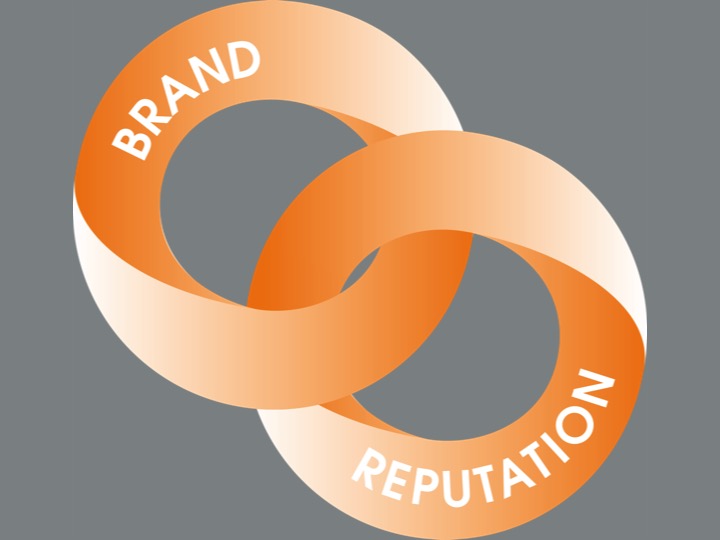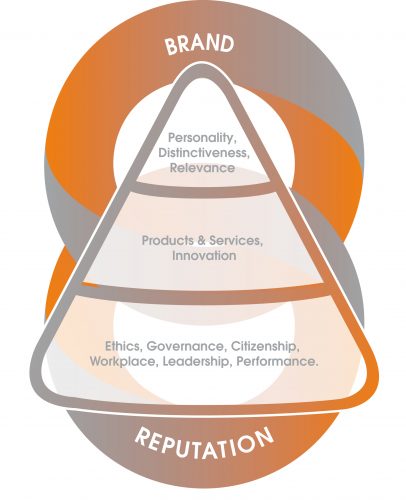
Tovera’s Ann Binnie asks: what exactly is this “brand reputation” people are talking about?
Lately we seem to have been seeing quite a lot of reference to something called “brand reputation” in the context of potential competitive advantage or threat. This concerns us here at Tovera because it seems there might be some muddying of the waters in industry terms. And we’re always keen to gain clarity – synchronise the jargon – before we embark on advising any client.
So we’re unapologetically revisiting a few fundamentals from our lexicon. In the nature of fundamentals, they really don’t change (although there is room for nuance of course – another concept that seems to be under strain at the moment).
We think it’s important to draw a clear distinction between corporate Brand and corporate Reputation. At the same time, it is essential to assess them together holistically since that’s what makes up the corporate entity (already we have nuance!). What helps us understand, and on that basis advise, is clarity as to what elements make up Brand and Reputation and ensures we take account of those elements.
So a few fundamentals:
The corporate Brand is the total entity – its purpose, its reason for being, its distinctive place in the business universe; it is what consumers consume, investors invest in and governments regulate; it needs to be the best it can be in order to compete effectively; its differentiated offering is key
The corporate Reputation is what underpins that activity – its way of working, its processes, transparency of its reporting procedures, how it treats its workers and suppliers; it needs to be the best it can be in order to be esteemed by all its stakeholders; its integrity is key
Thus Brands are relative, Reputations are absolute. The Reputation element deals in absolutes: are we good, well governed, adhering to regulations designed to ensure no harm is caused by our actions etc, while the Brand is viewed in relativities – are we more/increasingly famous, more distinctive, more relevant, etc We might be aiming to be fairer (Fair Trade), purer (Innocent), healthiest etc but those challengers and disrupters that shape the next iteration of a category find that if they do strike a chord and tick the relevant box, then competitors will be fast into their newly created space. And what was newly kind to us and our society/environment starts to become the expected and slips into the way we do things, the Reputation absolute.
And the corporate Brand has category characteristics, which it tries to excel at, disrupt or challenge;Reputation has generic characteristics which it must adhere to at a basic level in order to operate and ideally it should excel at those characteristics
Corporate values typically speak the language of Reputation, not Brand (which is why they’re so similar, think: trust, integrity, care, sustainable)
Purpose (in old-school speak, vision and/or mission) is defined by the Brand; Reputation supports that Purpose, it does not define it
If we can keep this in mind, when we plan, develop and assess our Brand and Reputation strategy, we can open our minds to the range of possibilities for development and growth of the Brand while safe in the knowledge that our parallel commitment to a solid Reputation will keep us honest.
That’s why clarity is key.

